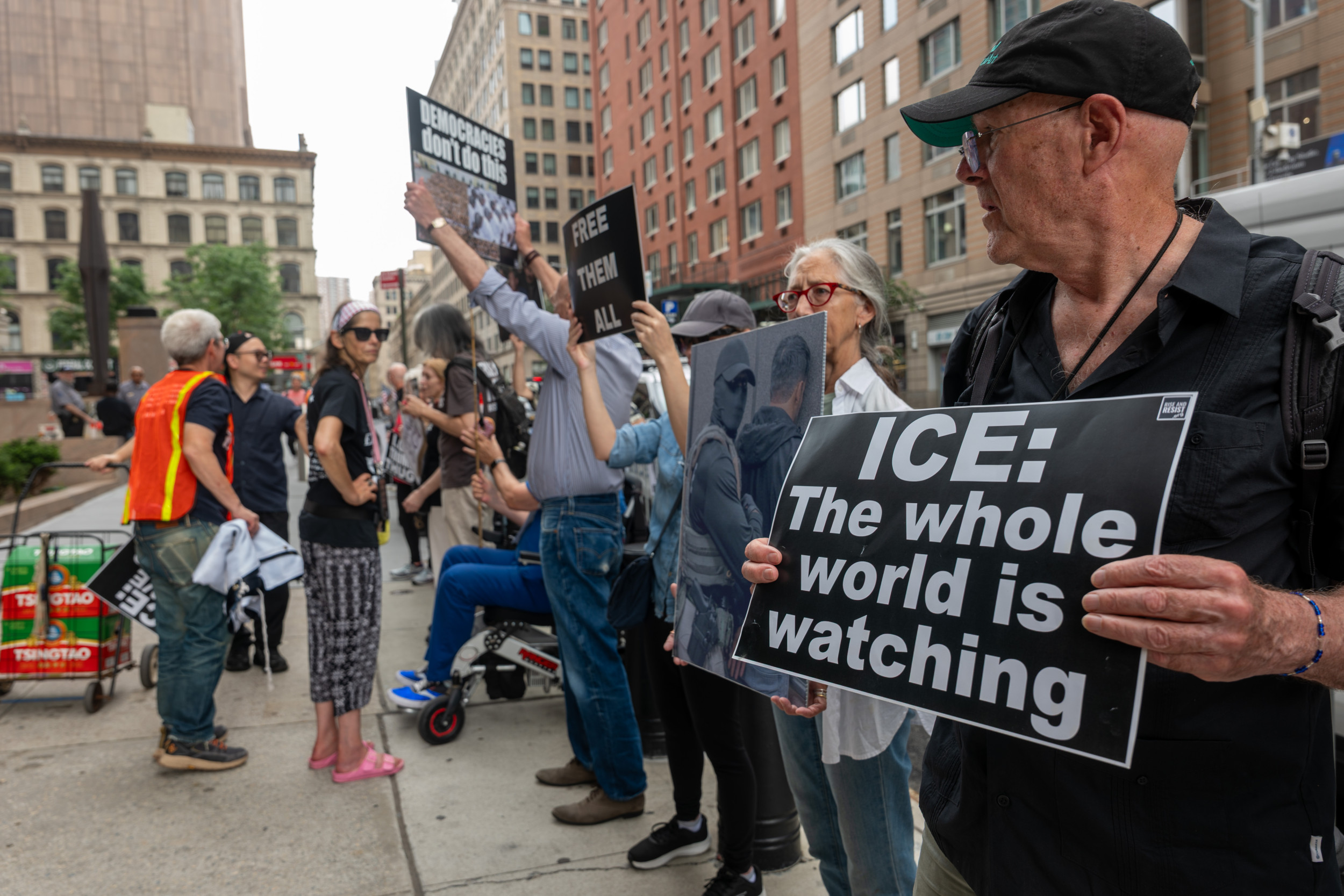
🎙️ Voice is AI-generated. Inconsistencies may occur.
A newly released memo from Immigration and Customs Enforcement (ICE) reveals that the Trump administration can now deport migrants to countries where they have no prior ties, sometimes with as little as six hours’ notice. The policy, effective immediately, has sparked concerns regarding legal and human rights, particularly following a Supreme Court ruling that lifted restrictions on such removals.
What to know:
- An ICE memo was issued on July 9 by Acting Director Todd Lyons.
- Migrants may be deported to “third countries” with minimal notice.
- In “exigent circumstances,” deportation can occur within six hours.
- No requirement to ask migrants if they fear persecution in the destination country.
- Diplomatic assurances from receiving countries may exempt them from further procedures.
- Critics say the policy violates due process and international protections
- Supreme Court ruling in June enabled the policy shift.
- DHS claims nearly a dozen safe third-country agreements are in place.
- Legal challenges are underway, with advocates calling the policy “unlawful.”
- Deportations have already occurred under the new guidelines.
Stay with Newsweek for the latest updates.
Trump administration expands ICE deportation powers to third countries
US President Donald Trump speaks to the press upon arrival at Morristown Municipal Airport in Morristown, New Jersey, on June 20, 2025.
Mandel Ngan/Getty Images
The Trump administration has authorized Immigration and Customs Enforcement (ICE) to deport migrants to countries where they have no prior ties, sometimes with as little as six hours’ notice. A memo issued July 9 by acting ICE Director Todd Lyons outlines the new policy, which allows expedited removal to “third countries” even without assurances that deportees will be safe from persecution or torture.
The policy follows a Supreme Court ruling in June that lifted restrictions on such deportations, enabling ICE to bypass traditional screening procedures. Critics say the memo violates constitutional protections and international law, especially for migrants who may face harm in unfamiliar nations.
Legal advocates warn the policy could lead to rushed deportations with minimal due process, while the Department of Homeland Security insists the agreements ensure safety and uphold constitutional standards.
